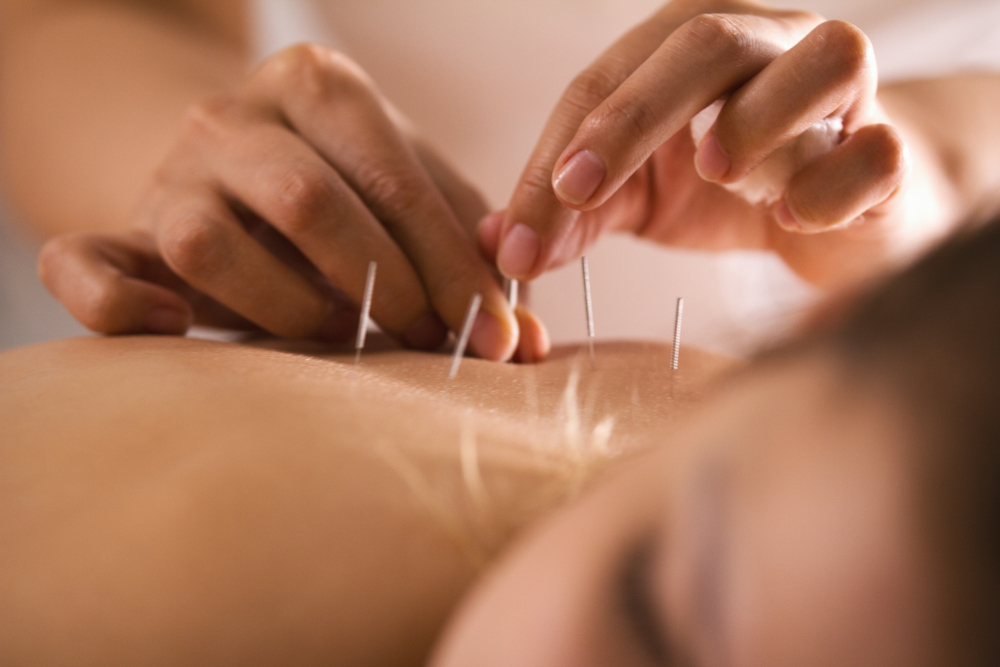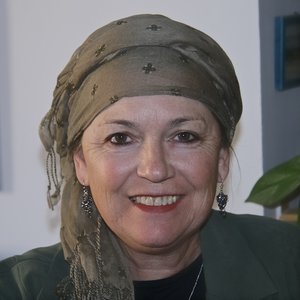
Thinking About Acupuncture? Here’s What You Need to Know
Written by Guest Author Yehudis Schamroth, CRNA, acupuncturist and herbalist
If you’re new to holistic healing as a type of treatment, acupuncture can seem a bit, well “unorthoboxed” and maybe even terrifying. How could pressing needles into your skin possibly make you feel better? Doesn’t that hurt? Well, no, it’s definitely not the overtly painful procedure you may be imagining, and considering that it’s been studied and practiced for over 2,500 years it seems acupuncture enthusiasts could seriously be onto something.
Some people swear by acupuncture, citing it as a “miracle” to improving their quality of life because it’s said to be able to treat everything from depression and allergies to morning sickness and cramps. So how does it work? The ancient Chinese discovered that the body is composed of distinct energetic channels called meridians that are associated with the organs in the body. By stimulating these meridians at specific points with needles (acupuncture), the body can be brought back into balance and harmony. And once that occurs, healing follows.
Acupuncture has gained increasing popularity over the last century throughout the world and is now accessible to almost everyone. As a medical professional of 30-plus years, I have first-hand experience with both the successes and also the failures of Western medicine in dealing with chronic issues specifically, so this kind of healing really appeals to me. Actually, I became a Traditional Chinese Medicine (TCM) practitioner because there are so many chronic issues that cannot be and are not being healed by Western medical therapies.
The Chinese philosophy behind acupuncture is a bit more complicated, as the ancient practice isn’t traditionally based in science and medicine. They believed that the human body was filled with and animated by an invisible life-giving force which they called ‘qi’ (pronounced ‘chee’) and when the qi was flowing well and going to all the right places, then a person would experience good mental and physical health. When the qi was flowing incorrectly (blocked or deficient) that would result in illness.
The concept of qi isn’t too out there — think of it as your body’s natural inner workings. Sometimes you are more prone to illness when feeling stressed or anxious. When you’re relaxed and healthy, your body physically reflects that too. After all, your mood, mental health, and general well-being do affect your physical health. Thus, acupuncture aims to assist people in achieving balance, or qi, and, as a result, provides relief for many ailments. What many people do not realize is that acupuncture can benefit everyone, as it treats virtually every medical condition and is excellent for helping to maintain a high level of health when used preventatively.
In my years working as a Chinese medical practitioner, I have found great success with the management and healing of a wide variety of issues with acupuncture. I have seen that
acupuncture promotes relaxation, improves sleep, boosts energy, decreases musculoskeletal pain, treats headaches, improves your mood, boosts your immune system, helps with disorders related to menstruation and menopause, and much, much more. In short, acupuncture can help keep you healthy!
If you are going for your first acupuncture treatment, here is some important information that you should know.
1) Does acupuncture hurt?
If you have never had an acupuncture treatment before, you might not realize just how thin the needles are. The thinnest acupuncture needles can be as fine as a human hair. People feel a range of sensations upon insertion of the acupuncture needles, depending on their level of sensitivity. Some report feeling something akin to a mosquito bite, or even a slight pinch that subsides immediately after the needle is inserted. Sometimes, one can feel a dull, aching sensation, especially when the needles are inserted more deeply into larger areas, like muscle.
2) How many treatments will I need?
The short answer- one treatment is not enough. A single acupuncture session will not usually provide an effective resolution of your particular issue. Acupuncture is a way of getting the brain to realize it needs to begin healing itself. Each session will build onto the previous ones in a cumulative fashion. Treatments with acupuncture are considered a process, requiring at least six treatments to see the desired results or changes for healing. The number of treatments will vary from person to person, depending upon several factors, like how long you have had the issue, how severe it is, and how often you can be treated. In addition, successful healing also heavily depends on how willing you are to make necessary changes to assist the process, like taking herbal medicines, or making dietary and lifestyle changes.
3) Acupuncture does much more than treat pain!
Most people first consider trying acupuncture to treat neck, shoulder or back pain that hasn’t been successfully treated by other treatments, medications or therapies. According to WHO, the World Health Organization, “acupuncture can treat a variety of different conditions that range
from insomnia to digestive disorders to autoimmune disease.” And there is evidence that acupuncture can also be preventative, and can even help resolve and improve symptoms of severe incidents that are cardiac in nature, like stroke.
4) How much will a series of acupuncture treatments cost?
In Israel, acupuncture treatments are considered to be an essential health benefit and are therefore very often covered by your health plan with a referral from your local MD. In America, more and more insurance plans are covering acupuncture to treat chronic pain and other symptoms. In many clinics, including my own, packages are offered to enable a discount for purchase in advance. This way, people who have limited finances can be treated within their means.
5) Clinical trials have proven acupuncture’s benefits
The effectiveness of acupuncture has been studied extensively with clinical trials in China, Europe and the US. Both Western and Eastern medical institutions have demonstrated that acupuncture works. Evidence-based studies conclude that acupuncture relieves pain, improves organ function, and helps relieve symptoms of chronic diseases and of chemotherapy, as well. Patients who struggle with infertility can become strengthened by acupuncture, and the chances of becoming pregnant are greatly increased after several treatments. The effects of acupuncture on the brain and body are only beginning to be understood. Current evidence suggests that many factors—like expectation and belief—that are unrelated to acupuncture needling, may play important roles in the beneficial effects of acupuncture on pain. (NIH)
Whether acupuncture is a treatment of the nervous system and pathways, or whether it’s training the brain to experience less pain and to heal disease, the long-term benefits and low risk of side effects makes it a viable treatment option. Acupuncture is increasingly recognized by Western medicine as an effective alternative or adjunct to conventional treatments for nearly all medical issues. Because acupuncture has so many positive effects on the body, with minimal incidence of side effects, it is often considered when creating an integrative medicine treatment plan.

Whether acupuncture is a treatment of the nervous system and pathways, or whether it’s training the brain to experience less pain and to heal disease, the long-term benefits and low risk of side effects makes it a viable treatment option.
 After a long career as a nurse anesthetist Yehudis Schamroth became certified in TCM- Traditonal Chinese Medicine. She now has a busy Integrative Medicine practice where she combines conventional medical knowledge with acupuncture and herbalism, thereby offering truly holistc healing with both Western and Eastern Medicine. Yehudis practices in the Bet Shemesh , Efrat and Jerusalem areas in Israel.
After a long career as a nurse anesthetist Yehudis Schamroth became certified in TCM- Traditonal Chinese Medicine. She now has a busy Integrative Medicine practice where she combines conventional medical knowledge with acupuncture and herbalism, thereby offering truly holistc healing with both Western and Eastern Medicine. Yehudis practices in the Bet Shemesh , Efrat and Jerusalem areas in Israel.Related Articles
Related
What Is Breast Cancer?
October is Breast Cancer Awareness Month, and there’s a lot to be aware of. While cancer is the second cause of death of women in the US, being beaten only by heart disease for women over the age of 19, according to the American Cancer Society, breast cancer is the...
Its Not Genetic, But it May Show up in Your Jeans
One of my favorite ads growing up showed two pairs of jeans, one on a person thin and trim. The other pair exploding from the wearer's weight. It read, “Being overweight is not genetic, but it does show up in your jeans!” This is a powerful image that can be used to...
The Nurse’s Station
Welcome to our new monthly series of Q&A on health issues that will help you make better-informed decisions for your and your family's good health. We took a poll and asked people for topics of interest or questions they’d like us to answer. This month we...
